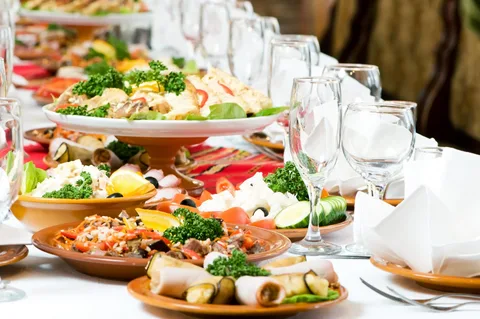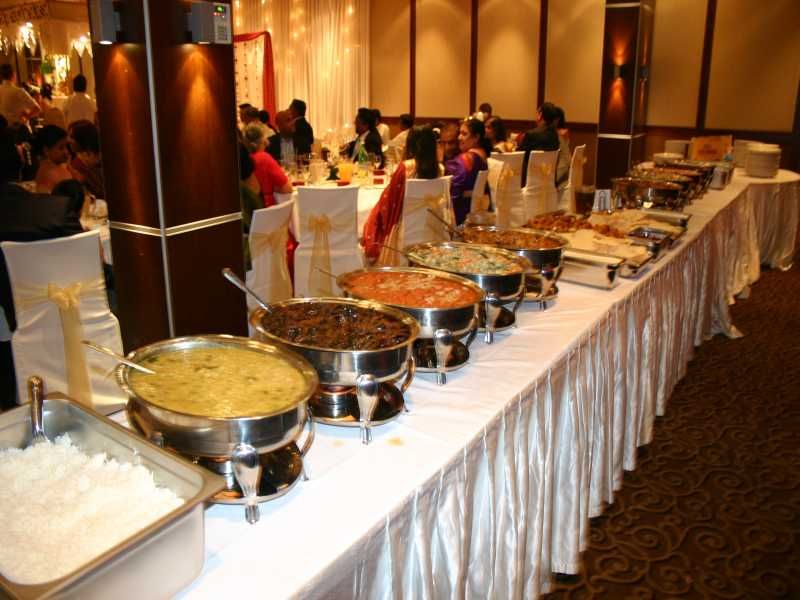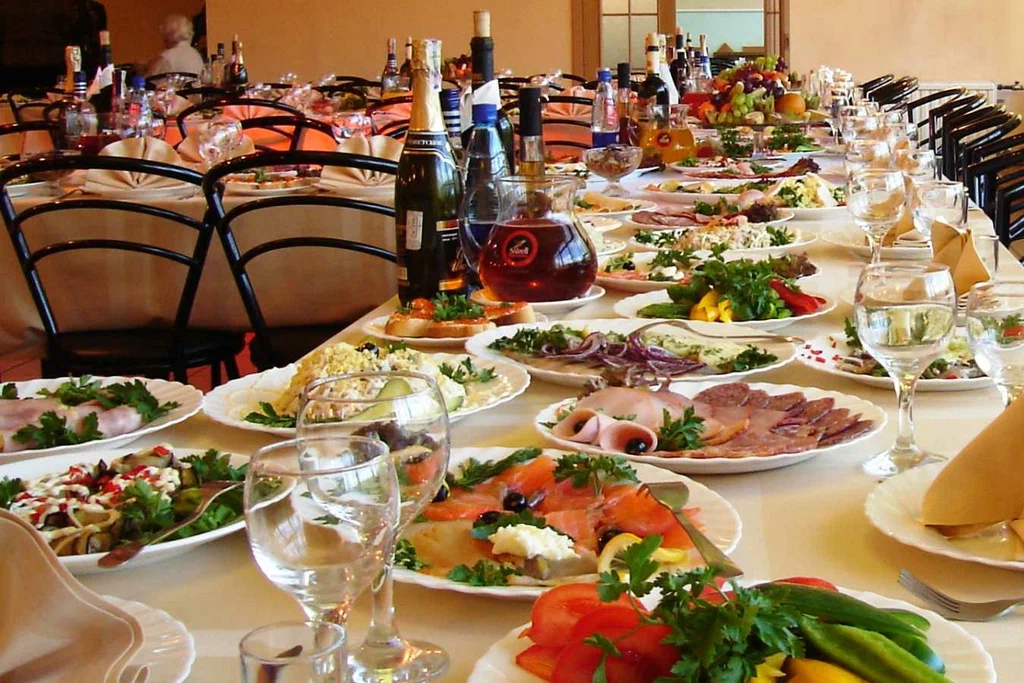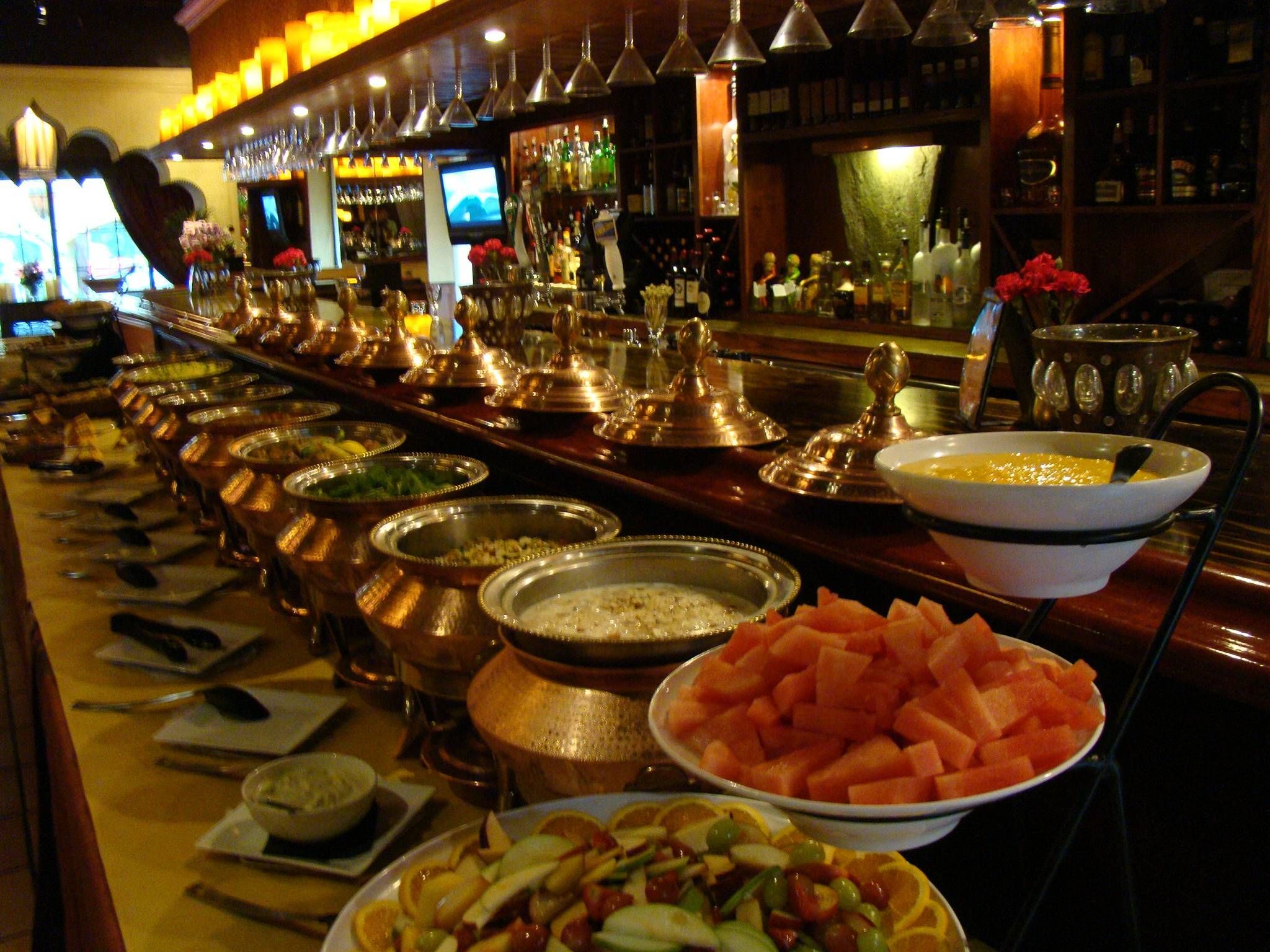“Good food is the foundation of genuine happiness.” This quote resonates even more when hosting events where food is the centerpiece of connection and celebration. Whether you’re a seasoned caterer or searching for the best food catering service, ensuring food safety is not just a responsibility but a non-negotiable standard. Hygienic food turns twofold in the celebration, reflecting the caterer’s professionalism and the event organizer’s health concern toward guests. In a world where foodborne illnesses impact an estimated 600 million people annually, maintaining food safety is paramount for the best catering companies striving for excellence. In this blog, we’ll explore actionable steps to help caterers maintain hygiene and ensure that every bite served is safe and delightful.
Importance of Food safety as being the best food catering service provider
Food safety is a cornerstone of the booming catering business. Along with delicacies of taste and flavors and personalized food menus, providing guests with a safe and hygienic experience is paramount for the best catering companies. Whether it is a personal or professional event, hygiene is crucial at every step. Some legal authorities craft food safety rules and regulations in catering that should be adhered to by the best food catering services. Keeping the food safety concern a priority brings immense pleasure and utmost satisfaction. Some of the following points to understand the importance of food safety in catering –
- Prevent foodborne illnesses
- Adhere to food standards and regulations
- Enhance loyalty and reliability.
Why Food Safety Matters in Catering
The Stakes are High
Foodborne illnesses can tarnish reputations and lead to financial losses and even legal liabilities. The Centers for Disease Control and Prevention (CDC) reports that 1 in 6 Americans gets sick from contaminated food each year. Food safety concerns compliance, trust, and responsibility for the best party catering.
Recent Trends in Food Safety
With an increasing demand for healthier options and sustainable catering, businesses are embracing advanced food safety measures. From digital temperature monitoring systems to blockchain for traceability, the catering industry is integrating technology to ensure transparency and safety.
Steps to Ensure Food Safety Standards in Catering
Start with Safe Suppliers
The journey to food safety begins with sourcing. Opt for suppliers with high-quality standards and certifications, such as ISO 22000 or FSSC 22000. Check reviews and conduct audits if necessary.
Expert Tip: Choose local and seasonal produce whenever possible. It’s fresher, reducing the likelihood of spoilage.
Implement a Robust HACCP Plan
Hazard Analysis and Critical Control Points (HACCP) are the backbone of food safety. They identify potential hazards and outline control measures for every step of food preparation.
Key Points of a HACCP Plan:
- Identify potential hazards (biological, chemical, physical).
- Establish critical limits (e.g., safe cooking temperatures).
- Monitor processes and keep records.
According to the Global Food Safety Initiative (GFSI), companies with HACCP systems have a 35% lower risk of food safety incidents.
Maintain Optimal Storage and Transportation
Improper storage and transportation are common culprits in contamination. To maintain the integrity of perishable items, invest in cold chain management.
Checklist for Safe Storage:
- Keep perishables below 40°F (4°C).
- Store raw and cooked foods separately to avoid cross-contamination.
- Regularly clean and sanitize storage units.
Note: Catering for large parties requires proper labeling and organized storage to prevent mix-ups
Train Staff Thoroughly
Your team is your greatest asset in ensuring food safety. Everyone, from chefs to servers, must understand the importance of hygiene and proper food-handling practices.
Key Training Areas:
- Proper handwashing techniques.
- Avoiding cross-contamination by using separate tools for raw and cooked foods.
- Recognizing the danger zone: 40°F to 140°F, where bacteria thrive.
“Empowered employees ensure empowered outcomes, especially in food safety.”
Use Safe Cooking Techniques
Cooking food to the proper internal temperatures kills harmful bacteria. Use food thermometers to ensure accuracy.
Safe Cooking Temperature Guide:
- Poultry: 165°F (74°C)
- Beef, pork, lamb: 145°F (63°C)
- Fish: 145°F (63°C)
Don’t rely on visual cues like color or texture, as they can be misleading.
Stay Compliant with Local Regulations
Every region has specific food safety laws and regulations. Catering businesses must stay updated with guidelines issued by health departments or regulatory bodies like the FDA, EFSA, or FSSAI.
Pro Tip: Participate in food safety workshops and seminars to keep up with evolving regulations and best practices.
Technology: The Game-Changer in Food Safety
Technology is transforming food safety in catering from digital apps to IoT-enabled devices.
Popular Innovations:
- Digital Food Thermometers: Ensure precise cooking temperatures.
- Blockchain Technology: Provides end-to-end food traceability.
- AI Monitoring Systems: Predict potential safety risks based on patterns.
According to a Statista report, the global market for food safety technologies is projected to grow to $18 billion by 2026, reflecting the increasing importance of safety standards.
The Role of Clients in Food Safety
As a client, you play a pivotal role in ensuring food safety at your event.
What to Ask Your Caterer:
- Are you certified in food safety standards?
- How do you manage allergies and dietary restrictions?
- What measures are taken to prevent cross-contamination?
Pro Tip: Insist on a tasting session to evaluate the quality and Safety of food
beforehand.
Food Allergy Management in Catering
Catering services must have stringent protocols for managing allergens, with nearly 32 million Americans suffering from food allergies.
Here is How to Manage Allergies Effectively:
- Clearly label all dishes with allergen information.
- Train staff to handle special requests with care.
- Use separate utensils and preparation areas for allergen-free meals.
Sustainability Meets Food Safety
Sustainability is a rising trend in the catering industry. The best catering companies incorporate eco-friendly practices, such as using biodegradable packaging or sourcing organic produce, to ensure safety and appeal to environmentally conscious clients.
Pro Tip: Balance sustainability with practicality. Reusable containers, for example, can reduce waste and maintain food hygiene.
Conclusion
Ensuring food safety standards is not just about avoiding risks; it’s about creating memorable dining experiences that clients can trust. The best catering companies understand that safety and quality go hand-in-hand, making them stand out as reliable partners for any occasion.
If you’re searching for the best food catering or need the best catering for parties, then “Best Catering in Dubai” is one such provider that prioritizes food safety at every step. After all, safe food is the secret ingredient to a successful event. Our expert professionals always ensure proper hygiene and adhere to food safety standards and instructions that ensure the healthy well-being of an individual. “Safety in food is Safety in life. Never compromise on it.” By following these comprehensive guidelines and trends, caterers of the best catering companies can ensure they meet the highest food safety standards, earning both trust and accolades from clients and guests alike.




